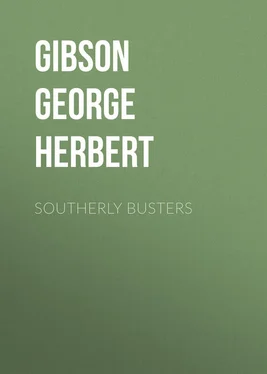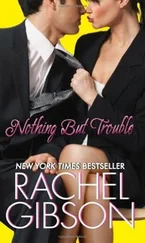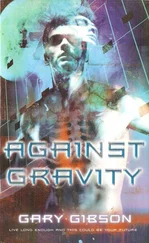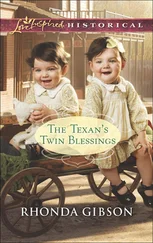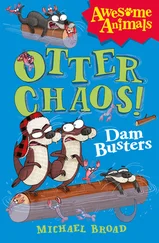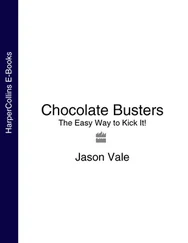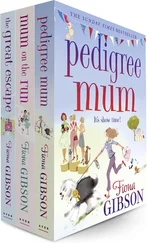George Gibson - Southerly Busters
Здесь есть возможность читать онлайн «George Gibson - Southerly Busters» — ознакомительный отрывок электронной книги совершенно бесплатно, а после прочтения отрывка купить полную версию. В некоторых случаях можно слушать аудио, скачать через торрент в формате fb2 и присутствует краткое содержание. Жанр: foreign_antique, foreign_prose, на английском языке. Описание произведения, (предисловие) а так же отзывы посетителей доступны на портале библиотеки ЛибКат.
- Название:Southerly Busters
- Автор:
- Жанр:
- Год:неизвестен
- ISBN:нет данных
- Рейтинг книги:5 / 5. Голосов: 1
-
Избранное:Добавить в избранное
- Отзывы:
-
Ваша оценка:
- 100
- 1
- 2
- 3
- 4
- 5
Southerly Busters: краткое содержание, описание и аннотация
Предлагаем к чтению аннотацию, описание, краткое содержание или предисловие (зависит от того, что написал сам автор книги «Southerly Busters»). Если вы не нашли необходимую информацию о книге — напишите в комментариях, мы постараемся отыскать её.
Southerly Busters — читать онлайн ознакомительный отрывок
Ниже представлен текст книги, разбитый по страницам. Система сохранения места последней прочитанной страницы, позволяет с удобством читать онлайн бесплатно книгу «Southerly Busters», без необходимости каждый раз заново искать на чём Вы остановились. Поставьте закладку, и сможете в любой момент перейти на страницу, на которой закончили чтение.
Интервал:
Закладка:
But while in Bathurst's busy streets
He got upon the spree,
And publicans was awful cheats
For soon "lamm'd down" was he.
He said he'd "busted up his cheque"
(What's that, I'd like to know?)
And now his happiness was wrecked,
To work he'd got to go.
He'd known the time, not long ago,
When half the year he'd spend
In idleness, and comfort too,
A-camping in a "bend."
No need to tread the weary track,
Or work his strength away;
He lay extended on his back
Each happy summer day.
When sun-set comes and day-light flags,
And dusky looms the scrub,
He'd bundle up his ration-bags
And toddle for his grub,
And to some station-store he'd go
And get the traveller's dower —
"A pint o' dust" – that was his low
Expression meaning flour;
But now he couldn't cadge about,
For squatters wasn't game
To give their tea and sugar out
To every tramp that came.
The country's strength, he thought, was gone,
Or going very fast,
And feeding tramps now ranked among
The glories of the past.
He'd seen the "Yanko" in its pride,
When every night a host
Of hungry tramps at supper tried
For who could eat the most.
A squatter then had feelin's strong
And tender in his breast,
And if a trav'ller came along
He'd ask him in to rest.
"But squatters now!" – he stamped the soil,
And muttered in his beard,
He wished they'd got a whopping boil
For every sheep they sheared!
His language got so very bad —
It couldn't well be worse,
For every second word he had
Now seemed to be a curse.
And shaking was his withered hand
With passion, not with age —
I never thought so old a man
Could get in such a rage.
His eyes seemed starting from his head,
They glared in such a way;
And half the wicked words he said
I shouldn't like to say;
But from his language I inferred
There wasn't one in three,
Of squatters worth that little word
Commencing with a "D."
Alas! for my poetic lore,
I fear it was astray,
It never said that shepherds swore,
Or talked in such a way.
The knotted cordage of his brow
Was tightened in a frown —
He seemed the sort of party, now,
To burn a wool-shed down.
He told me, further, and his voice
Grew very plaintive here,
That now he'd got to make the choice
And work , or give up beer!
From heavy toil he'd always found
'Twas healthiest to keep,
And mostly stuck to cadgin' round,
And lookin' after sheep.
But shepherdin' was nearly "cooked" —
I think he meant to say
That shepherds' prospects didn't look
In quite a hopeful way.
A new career he must begin,
(And fresh it roused his ire)
For squatters they was fencin' in
With that infernal wire;
And sheep was paddocked everywhere —
'Twas like them squatters' cheek! —
And shepherds now, for all they'd care,
Might go to Cooper's Creek.
He said he couldn't use an axe,
And wouldn't if he could;
He'd see 'em blistered on their backs
'Fore he'd go choppin' wood;
That nappin' stones, or shovellin',
Warn't good enough for he,
And work it was a cussed thing
As didn't ought to be.
He'd known the Lachlan, man and boy,
For close on forty year,
But now they'd pisoned every joy,
He thought it time to clear.
They gave him sorrow's bitter cup,
And filled his heart with woe,
And now at last his back was up,
He felt he ought to go.
He'd heard of regions far away
Across the barren plains,
Where shepherds might be blythe and gay
And bust the squatters' chains.
To reach that land he meant to try,
He didn't care a cuss,
If 'twasn't any better, why,
It couldn't be much wuss.
Amongst the blacks, though old and grey,
Existence he'd begin,
And give his ancient hand away
In marriage to a "gin."
He really was so old and grim,
The thought was in my mind,
That any gin to marry him
Would have to be stone blind.
'Twould make an undertaker smile:
What tickled me was this,
The thought of such an ancient file
Indulging in a kiss!
And, if it's true, as Shakespeare said,
That equal justice whirls,
He ought to think of Nick instead
Of thinking of the girls.
Then drooped his grim and aged head,
And closed that glaring eye,
And not another word he said
.Except a grunt or sigh.
More lean he looks and still more lank
Such changes o'er him pass,
And down his ancient body sank
In slumber on the grass.
I thought, old chap, you're wearing out,
And not the sort of coon
To lead a blushing bride about,
Or spend a honeymoon;
Or if, indeed, there were a bride
For such a withered stick,
With such a tough and wrinkled hide,
That bride should be old Nick.
As streaks of faintish light began
To mark the coming day,
I left that grim and aged man
And slowly stole away.
And when the winter nights are rough,
And shrieking is the wind,
Or when I've eaten too much duff
And dreams afflict my mind,
I see that lean and withered hand,
And, 'mid the gloom of night,
I see the face of that old man,
And horrid is the sight:
While on my head in agony
Up rises every hair,
I see again his glaring eye —
In fancy hear him swear.
At breakfast time, when I come down
To take that pleasant meal,
With pallid face, and haggard frown,
Into my place I steal;
And when they say I'm far from bright,
The truth I dare not tell:
I say I've passed a sleepless night,
And don't feel very well.
WHERE IS FREEDOM?
Oh! Mother, say, for I long to know,
Where doth the tree of Freedom grow,
And strike its roots in the heart of man
As deep and far as the famed banyan?
Is it 'mid those groups in the Southern Seas,
In the Coral Isles, or the far Fijis,
Where the restless billows seeth and toss
'Neath the gleaming light of the Southern Cross?
"Not there – not there, my child."
Then tell me, mother, can it be where
The cry of "Liberty" rends the air?
Where grow the maize and the maple tree,
In the fertile "bottoms" of Tennessee?
Or is it up where the north winds roar,
Away by the fair Canadian shore,
Where the Indians shriek with insane halloos —
As drunk as owls in their bark canoes?
"Not there – not there, my child."
Or is it back in the Western States,
Where Colt's revolver rules the fates,
And Judges lounge in a liquor shop
While Dean and Adams's pistols pop?
Where Justice is but a shrivelled ghost
As deaf and blind as a stockyard post,
And License sits upon Freedom's chair —
Oh, say, dear mother, can it be there?
"Not there – not there, my child."
Интервал:
Закладка:
Похожие книги на «Southerly Busters»
Представляем Вашему вниманию похожие книги на «Southerly Busters» списком для выбора. Мы отобрали схожую по названию и смыслу литературу в надежде предоставить читателям больше вариантов отыскать новые, интересные, ещё непрочитанные произведения.
Обсуждение, отзывы о книге «Southerly Busters» и просто собственные мнения читателей. Оставьте ваши комментарии, напишите, что Вы думаете о произведении, его смысле или главных героях. Укажите что конкретно понравилось, а что нет, и почему Вы так считаете.
